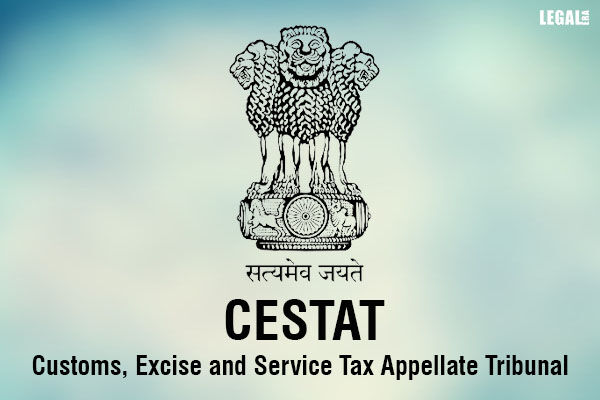
Post-sale Services like PDI and ASS Excluded from Excise Duty under CESTAT’s Latest Ruling
Suzuki Motorcycle India’s excise case sets precedent for post-sale service reimbursements
In a significant ruling, the Chandigarh Bench of the Customs, Excise, and Service Tax Appellate Tribunal held that expenses incurred by dealers for pre-delivery inspection and after-sale services, whether reimbursed by the manufacturer or included in the dealer margins, cannot be added to the assessable value for the purpose of excise duty. The judgment addresses an ongoing issue in the excise regime concerning what constitutes the ‘transaction value’ under the Central Excise Act, 1944.
Background of the Case
The case involved appellant, Suzuki Motorcycle India Pvt. Ltd., a leading manufacturer of two-wheelers and related parts. The company sold its vehicles to dealers at an ex-factory price, upon which excise duty was duly paid. As per the dealership agreement, dealers were responsible for carrying out pre-delivery inspections and offering free after-sale services to customers. The costs associated with these services were reimbursed by Suzuki.
During an audit, the excise department found that Suzuki had not included the reimbursement amounts for PDI and ASS in the assessable value of the goods. The department issued show cause notices, asserting that such reimbursements formed part of the consideration for sale and, therefore, should be included in the assessable value under Rule 6 of the Central Excise Valuation Rules, 2000.
In response, the Commissioner upheld the department’s demand, imposing a liability of ₹2.16 crore along with interest and penalty, invoking Sections 11A, 11AA, and 11AC of the Central Excise Act, 1944.
Legal Framework and Issues
The key legal question in this case was whether the reimbursements made by Suzuki to dealers for PDI and ASS could be considered part of the transaction value, and consequently be subject to excise duty. According to Section 4 of the Central Excise Act, the transaction value is defined as the price paid by the buyer to the manufacturer for the goods sold, including any additional charges related to the sale.
The department argued that the reimbursements were part of the consideration for the sale, and thus should be included in the assessable value. In contrast, Suzuki contended that since PDI and ASS were carried out by dealers after the transfer of ownership, they were not integral to the sale transaction and, therefore, should not be included in the excise duty base.
Tribunal’s Ruling
The two-member bench of CESTAT, comprising Judicial Member S. S. Garg and Technical Member P. Anjani Kumar, ruled in favour of Suzuki, setting aside the Commissioner’s order. The bench noted that the issue had already been addressed in favour of the appellant in earlier cases, and there was no evidence to suggest that any additional amount collected by the dealers was returned to the manufacturer.
The tribunal reiterated that the transaction value under Section 4 of the Central Excise Act refers to the price paid by the buyer to the manufacturer. The excise duty base cannot be artificially inflated by adding amounts that are reimbursed for services carried out after the sale and transfer of ownership. In the absence of any proof of extra consideration flowing back to the manufacturer, the reimbursements for PDI and ASS could not be treated as part of the transaction value.
Key Considerations
Pre-Delivery Inspection and After-Sale Services: The tribunal emphasized that these activities, although reimbursed by the manufacturer, were carried out by the dealers after the sale of goods and transfer of ownership. Since they occurred post-sale, they could not be considered part of the transaction value for excise duty purposes.
Reimbursement vs. Additional Consideration: The central issue was whether the reimbursement of costs for PDI and ASS should be treated as part of the sale consideration. The tribunal clarified that these reimbursements were not an additional consideration from customers, as they were merely a pass-through cost reimbursed to dealers.
Legal Precedents: The appellant relied on several judicial precedents, including decisions in its favour from earlier cases. The tribunal highlighted the consistency in previous rulings that similarly classified post-sale services and inspection costs as separate from the transaction value.
Implications of the Ruling
The decision has significant implications for businesses, particularly in the automotive sector, where pre-delivery inspections and after-sale services are common practices. Manufacturers who reimburse dealers for such services can now be confident that these costs will not be included in the assessable value for excise duty, provided they meet the conditions outlined by the tribunal.
Moreover, the ruling clarifies the interpretation of “transaction value” under the Central Excise Act, helping to reduce ambiguity in the application of excise duty. It provides a clear distinction between direct sale-related costs and post-sale services that are not part of the sale transaction.
The CESTAT’s judgment underscores the importance of accurate valuation in determining the excise duty base and provides clarity on the treatment of post-sale services and reimbursements. By ruling that expenses on pre-delivery inspection and after-sale services cannot be added to the assessable value, the tribunal has ensured that excise duty is levied only on the actual sale consideration, thus upholding the principles of fairness and clarity in the tax system.